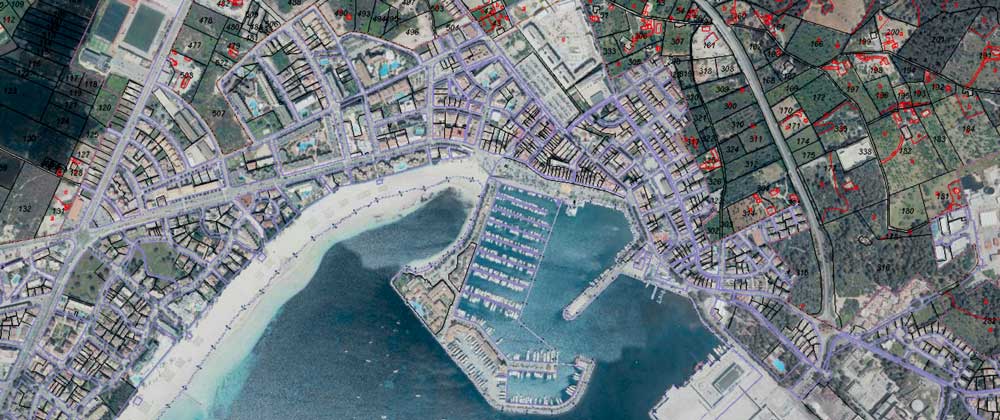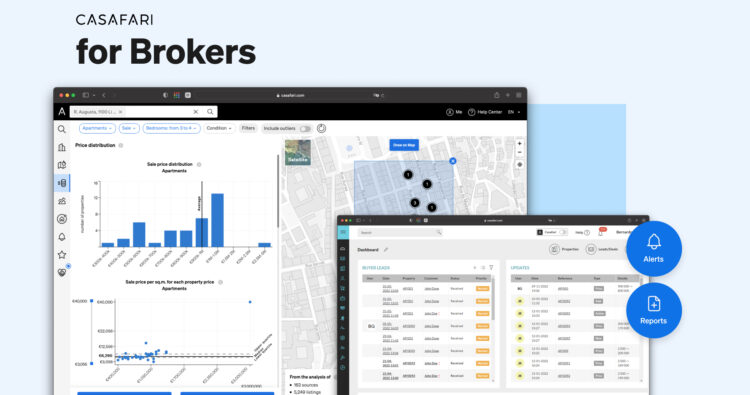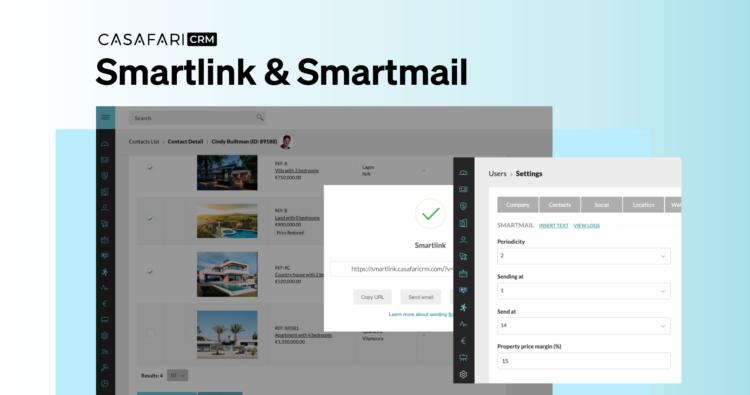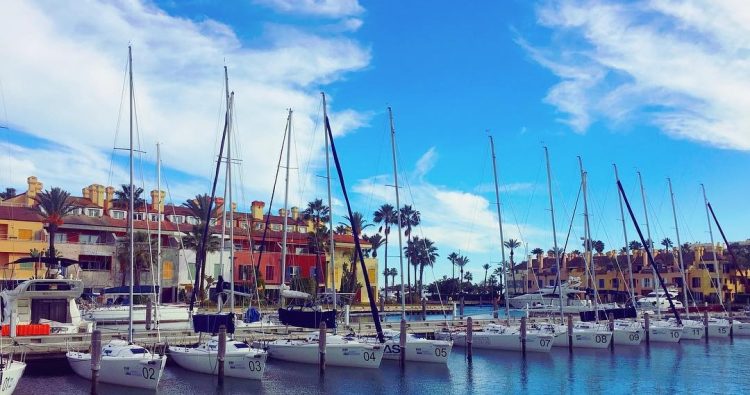In the second part of our buying property in Spain series, we provide you with advice on signing an agreement to secure your Spanish property investment.
a. Before signing a real estate purchase agreement: due diligence
After a detailed search process, and having asked the right questions and obtained the relevant information, you should be ready to undertake the legal part of the buying process.
It’s now up to you to request the following information from the current owner(s) and to examine it carefully:
1. who the property belongs to and who its rightful owner(s) are;
2. whether there any outstanding invoices, or charges on the property such as mortgages or injunctions;
3. if home currently has any lessees or tenants;
4. whether there any monies due to a tenants’ association, or unpaid property taxes;
5. which types of tax apply in your case;
6. the detailed costs of purchasing and owning the property;
7. the annual running costs, including taxes, community charges, and insurance.
If you don’t have an estate agent or lawyer you should be able to obtain most of the above information from the local property registry (Registro de la Propiedad) in the region where the property is registered. You can contact any property registry in Spain and request information either in person or by fax, post or e-mail.
Land registry information can be requested on the website of the Land and Mercantile Registrars’ Association of Spain (if you need a land registry extract in English, use the international web page). If you request the information online, online payment is also accepted. Once the Extract is obtained, it will be sent to your email address. Moreover, at the association consumer service, you can find out to which local registry the property belongs and apply there directly.
Note that registry information can be received in the following two forms:
1. An uncertified note (nota simple): this document only provides information for you personally and cannot be used as a legal document to prove the non-existence of mortgages and loans. It gives a description of the property, its location and area, as well as any related properties, the names of the legal owners, information about mortgages liabilities and interests. It lists any injunctions, or legal actions related to the property and all tax-related liabilities, as well as the classification of the land as either “rustico”, “urbano” or “urbanisable”.
Please include any specific enquiries in the application in order for the Land Registry to provide it. See a sample of a Nota Simple.
2. Certificate of ownership and liabilities: this document is a public document signed by a registrar, which can be used in in court or legal contexts, to prove absence or presence of loans or charges against the property. It contains all the information included in the uncertified note, but with more detailed explanations.
Other complementary documentation should be provided by the seller, such as:
– an authorised copy of the seller’s deed of purchase;
– a tax receipt proving that all property taxes have been paid;
– a certificate from the President or Secretary of the tenants’ association confirming that there are no outstanding dues;
– a deed containing a formal statement confirming that there are no leases existing on the property.
Before buying a property in Spain, with the Notary:
1. Apply for an NIE (Número de Identificación de Extranjero) number, which is needed for identification purposes in order to carry out a fiscal function such as opening a bank account, buying a property, car, or boat.
It is the official Spanish identification number for both EU and non-EU citizens. In order to apply for NIE number, you will need to go to in person to the Spanish national police station or it can also be done through a solicitor or abogado, but in order to do so you must give the solicitor your power of attorney in addition to your passport or a notarised copy of the passport.
You cannot enter into a contract for the supply of electricity, water or a telephone line without providing your NIE number, along with your bank details. This is because the utility providers will only accept customers whose bills are paid automatically through a bank account. It can take up to 14 days for the NIE to be issued, so it should be a priority on your first visit.
2. All services and utilities must be paid for through your Spanish bank account, so it’s highly recommended that you open a bank account immediately after obtaining your NIE.
There are leading banks with branches all over Mallorca including the Banca March, Banco de Sabadell, Banco Santander, BMN – Banco Mare Nostrum, Barclays Bank, Caixabank and Deutsche Bank. Due to the high number of foreign property buyers in Spain, most banks should be able to assist you in your native language;
3. Mortgages and finance: this is one option which you might consider to facilitate the purchase of your home, but bear in mind:
a. before you apply to any bank for a loan, the bank will require that the property is already registered in your name. This happens simultaneously during the purchase process: when you and the seller go to the Notary to make your deed of sale, a representative from the bank, will also join you to transfer the money to the seller.
b. when signing a mortgage loan agreement, familiarise yourself with current consumer and user protection legislation relating to conditions that are non-negotiable in such agreements.
c. if the property you intend to buy already carries a mortgage, you have no obligation to replace the seller in the original mortgage deed. Request the cancellation of the seller’s mortgage, and apply to another financial institution for a deal which better suits you.
d. in the event you do agree to take the seller’s place in the original loan agreement, please ensure that you obtain a certificate from the seller issued by the bank, stating how much of the loan has been paid, and how much is still outstanding.
Also, ask the bank holding the mortgage for a more favourable interest rate and terms. If they refuse, you have the right to approach another bank to pay off the current mortgage under better terms. These transactions are also tax-free.
In summary, our advice on the above due diligence would be to consult professionals such as lawyers and estate agents, to undertake full and comprehensive checks. A lawyer can be engaged for a fee of between 0.5% and 1.5% of the purchase price. Do take the due diligence part seriously, as any homes built illegally on the land you own can be compulsorily demolished by the government, as in the case of Antonio Banderas’ mansion in 2000.
b. Signing the agreement
After successfully completing your due diligence and making the decision to buy a property, it’s time to sign the agreement but once you have done it and money is exchanged and the keys are handed over, there is no going back. That is why you need to ensure that to all legal requirements are met when signing.
Firstly, negotiate the price. Be creative as there are ways you can convince an estate agent to negotiate and if you make direct contact with the seller, you may be able to agree a discount on the asking price. But don’t always accept one discount as your survey may enable you to re-negotiate a better price.
Take into account how long the property has been for sale and how urgently the seller needs to make a sale, and consider other factors that may help you to achieve a price reduction.
But do compare your offer to other listings and prices and be realistic in your expectations and avoid putting the seller off with an unrealistic offer. If the price is good, there will probably be other buyers waiting for opportunities. If you reach a satisfactory agreement on the price, close the deal and close it fast!
Secondly, you will need to make a deposit, which is usually 10% of the final price, though this does not always apply. The deposit should be accompanied by a simple contract until the public deed of purchase is issued. This is a contract of intentions, where the seller expresses their interest in selling to the prospective buyer, and the buyer to purchase the property.
In Spain such an agreement is called ‘Contrato de Arras’, and in most cases, if the buyer cancels the deal, he or she loses their deposit and if the seller withdraws from the contract, then they pay a penalty.
In the case of a mortgage, when the deposit has been paid and there is a ”Contrato de Arras” in place, the bank will send its appraiser (tasador) to value the property, and only after the appraiser’s valuation will the loan be confirmed.
Even if you don’t need a mortgage, you can engage an appraiser to establish the market value of the property. However, do be aware that this is the bank’s valuation and it may not take into account location, a sea view or the architect’s design in the same way the market does.
Step three, after paying the deposit the agreement finally becomes finalised, but it’s important to recognise that there are two types of agreements:
1. If there is no mortgage on the property, this can be concluded as a private transaction, without the need for a Notary. This is not usually recommended, however, because if you decide to register your property in the property registry, you will need a notarial deed. However, if both parties agree, this document can later be notarised after signing.
2. It is recommended, however, that the agreement is drawn up in the form of a notarised deed, as it then becomes a public document authorised by a public Notary with all the necessary notarial checks. The resulting document will be considered authentic and can be used as proof of purchase. The choice of Notary is the responsibility of the party paying the Notary fees, which is usually the purchaser.
When the agreement has been signed, it should be registered at the local property registry. Although the Notary can inform the registry that the deed has been signed, it is recommended that you do this personally or through a buyers’ agent or lawyer. This way your ownership is guaranteed.
The cost of registering is roughly 0.4% of the first €6,010, but the cost falls to 0.02% above the level of €6,010.121.
In addition to a notarial deed, it is important to obtain a Title Deed (Escritura publica de compraventa de vivienda), which is a public document certifying the change in legal ownership, and this also needs to be registered at the Property Register.
This document contains a brief description of the property, the details of the owners, and additional information on costs, mortgages and other payments. The ”Escritura” contains information about the size and construction of the property, and is legally binding.
And this is all you need to know about buying property in Spain, when it comes to documents!






